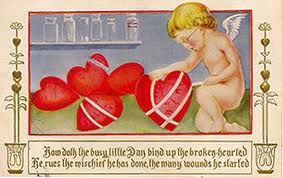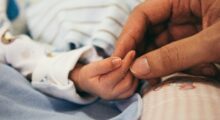Four years ago I went through a completely unexpected shock induced by the separation from my husband after 20 years of marriage. For me, the circumstances of how it happened played as a virtual spousal death, including all the intermingled phases of death, initially kicked off by the expected denial. It was an out-of-body, full cope-mode journey for me. I had heard of the “widower effect,” a condition where when a spouse dies the odds of the widow or widower dying soon after increases. This was something I noticed with my own friends who lost both parents within a short time frame. So I decided to research the widower effect. As I web searched, not only did I find it to be true through a plethora of national and international insurance company and municipal mortality studies around the world, but I also discovered that, to my complete surprise, there is a very real death-inducing physical condition for the widowed referred to as “Broken Heart Syndrome”.
With Valentine’s Day upon us, I confess, especially given my past situation, that stumbling on this information was like watching a car crash. One in which I was in the car experiencing the impact and I could not help but be squeamish and feel my heart race and my chest tighten (one of the side effects) as I read the facts of what, in my own heart, I already knew. The clinical term is “Cardiomyopathy” or what physicians also refer to as “Broken Heart Syndrome.” Studies prove it can indeed cause death. In a control group of widow/widowers to that of a control group of the married, 140 widowed persons die compared to 100 non-widowed. These numbers vary with the age of the widowed, but this is sadly a fair representation.
We have now entered the age of understanding how inexplicably our minds are connected to our bodies. To the tune of being so grief-stricken over lost love that our heart actually does break – as if to be fully pierced by Cupid’s arrow and bleed with unbearable pain. Cardiomyopathy is brought on by intense emotional or physical stress such as the death of a loved one or a divorce. The heart reacts, causing grief hormones with the variety of emotional stressors to surge and temporarily enlarging the heart. The heart, unable to pump properly, experiences severe heart muscle weakness. It’s different than a heart attack that actually kills the heart cells; with broken heart syndrome, the heart cells are “stunned” by the surge of adrenaline the stress of emotional bereavement causes. The good news is Cardiomyopathy is a temporary heart condition that can rebound quickly given the ability of the widow or widower to move forward.
Upon further investigation I learned the greatest chance of death for the recently widowed is within the first six months following the death, and continues for the first three years. Studies find that socioeconomics have no impact, proof that Cupid’s arrow of love is love by any other name. Suicide is higher for the recently widowed especially after the first week of loss. If the death was sudden or unexpected, the rate is higher for the widowed under the age of 55. Conversely, it is higher for those from 50 to 65 who lost their spouse to a chronic illness. There are two other possible factors attributed to broken heart syndrome: when both spouses were in the same accident and when they have spent their life exposed to the same environmental conditions.
We all deeply understand our basic human need to be with someone – hearts bonded as one “till death do us part”. Grief is a natural part of life but it can be a health benefit to move forward and find that someone to be with again. A love who exists in real life – after all broken heart syndrome proves Cupid’s love is no myth. I could now explore the set of additional studies that prove those who are married live longer, but more on that in next year’s Valentine’s Day post.
I wish you a Valentine’s Day filled with love’s embrace!

 Is “The Widower Effect” True?
Is “The Widower Effect” True?





 Funeral Favors Offer Visitors a Tangible Memento
Funeral Favors Offer Visitors a Tangible Memento
 “Comeback” by Prince
“Comeback” by Prince
 “Other Side” Documents Woman’s Fight To Die As She Wishes
“Other Side” Documents Woman’s Fight To Die As She Wishes














